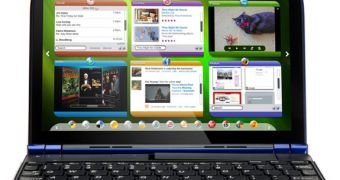With the Skylight, Lenovo was set to become one of the first PC suppliers to actually kickstart the smartbook market. Not only that, but it would have done so in a fairly unique fashion, as the electronic had its own custom operating system and a 1GHz ARM CPU. Back in April, however, rumors arose that the project had been delayed, and it appears that the smartbook-to-be will not be after all, instead fated to fall into oblivion before even coming to the market.
The plans to release the so-called “initial version of the Skylight” are being shelved, as is the U1 hybrid concept. This may come as a bit of a surprise, considering that Lenovo invested somewhere between 18 and 24 months into developing the Skylight OS products. On the other hand, the PC maker is going to try to build upon this effort as it moves on to Google's solution, which means that the ideas and concepts that spawned the U1 and the Skylight itself will leave their mark on future electronics.
“After careful consideration of market conditions and user feedback, Lenovo has decided to focus its resources on building a family of next-generation mobile Internet devices based upon open technologies such as (but not limited to) the Android kernel, similar to the Lenovo smartphone, which is available for sale in China now,” the official statement says.
“As a result of Lenovo's strategic shift towards open standards such as an Android kernel based environment, the Company has shelved its plans to release the initial version of the Skylight smartbook that featured a proprietary Linux-based OS,” the statement adds. “Lenovo remains committed to working with our strategic partners to deliver innovative products in the growing mobile internet space, including the aforementioned smartphones and smartbooks, as well as exploring innovative new concepts that continue to ‘push-the-envelope’ like the U1 hybrid PC.”
The company did not initially say when one could expect the Android-based products to start showing up. Fortunately, Engadget was able to learn that the fourth quarter of the ongoing year was being targeted.

 14 DAY TRIAL //
14 DAY TRIAL //